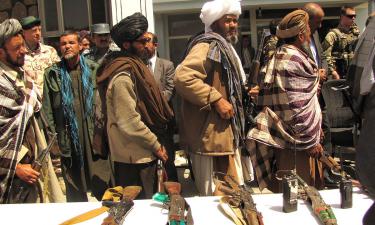One more reason to respect seniors
According to U.S. researchers report old people may hold the key to forming of human civilization and dramatic spread of humans in the last 30.000 years.
Rachel Caspari of the University of Michigan and Sang-Hee Lee of the University of California at Riverside believe that groups in which seniors survived better were more successful and passing their experience to the younger, allowed more people to live into old age.
judged the age of specimens by examining wear to teeth and classified "old" as twice the age of sexual maturity - roughly 30 years.
The fossils examined included Australopithecines, who lived up to three million years ago, Homo erectus, a more human-like ancestor that emerged 1 million years ago, as along with Neanderthals and early modern humans, which co-existed some 50,000 years ago.
Caspari and Lee found a five-fold increase the number of individuals surviving into old age in the Early Upper Palaeolithic period - around 30,000 years ago. This coincides with an explosive population growth of modern humans and the spread of archaeological artefacts that suggest the development of more complex social organisation.
The finding, published in this week's issue of the Proceedings of the National Academy of Sciences, supports the so-called "grandma hypothesis," Caspari said.
Anthropologists have long suspected older people may have played an important role in the development of early human societies by providing extra care for children, helping to accumulate useful information and strengthening kinship bonds.
The so-called "grandmother hypothesis," based on studies of African hunter-gatherer groups, suggests infertile women were vital for successful child-rearing, despite being unable to produce children themselves.
Subscribe to Pravda.Ru Telegram channel, Facebook, RSS!





